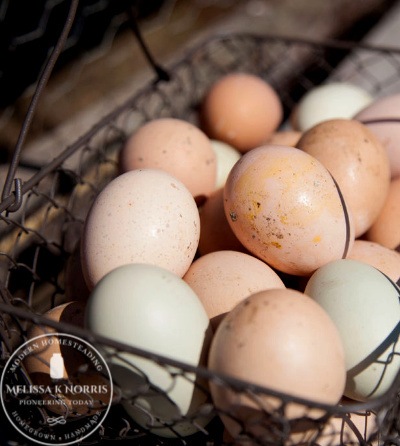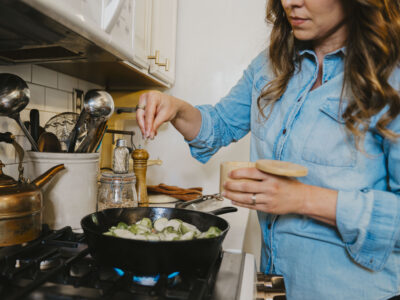Often times when we think about homesteading it’s in an idealistic or romanticized view because there are so many wonderful things about homesteading. But there’s real life and the harder aspects of homesteading. And sometimes we face situations that highlight and reinforce why what we do is so important. And sometimes those situations show us where we could do better.
Ann from A Farm Girl in the Making lives in Washington state about two hours south from where I live. And is at ground zero for the COVID-19 virus in King County, meaning 15 minutes from her home people are in quarantine.
I want to be clear this post is in no way about fear, but about the reality of life if it comes to your area (which we hope it doesn’t) but how this is the time to become prepared for any eventuality and for all my fellow hardcore homesteaders to take a moment to assess your supplies.
🍞 Struggling With Sourdough?
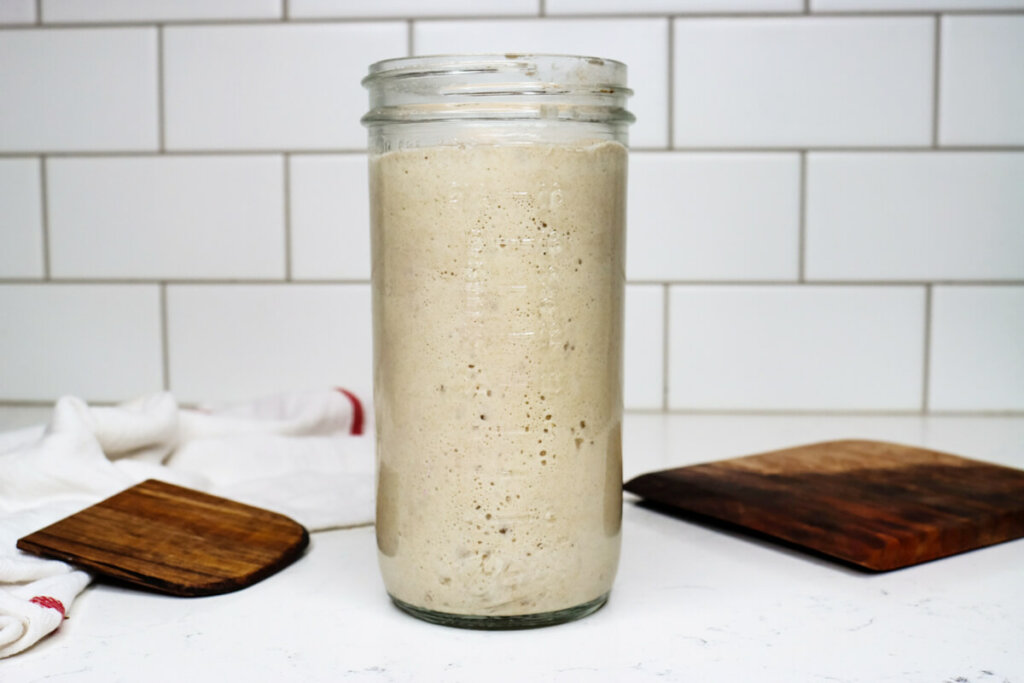
If your starter won’t take off, your loaves are dense and hard, or sourdough just flat-out overwhelms you…
👉 I’ll show you how to fix all of it.
Join my FREE workshop and learn how to make a bubbly, active starter—the right way, from Day One.
Natural Remedies Made Simple

Start your home apothecary with confidence—even if you’re brand new. Learn how to choose the right herbs for your body using the simple principles of herbal energetics.
Discover how warming, cooling, drying, and moistening herbs affect your body—so you can stop guessing and start making remedies that actually work.
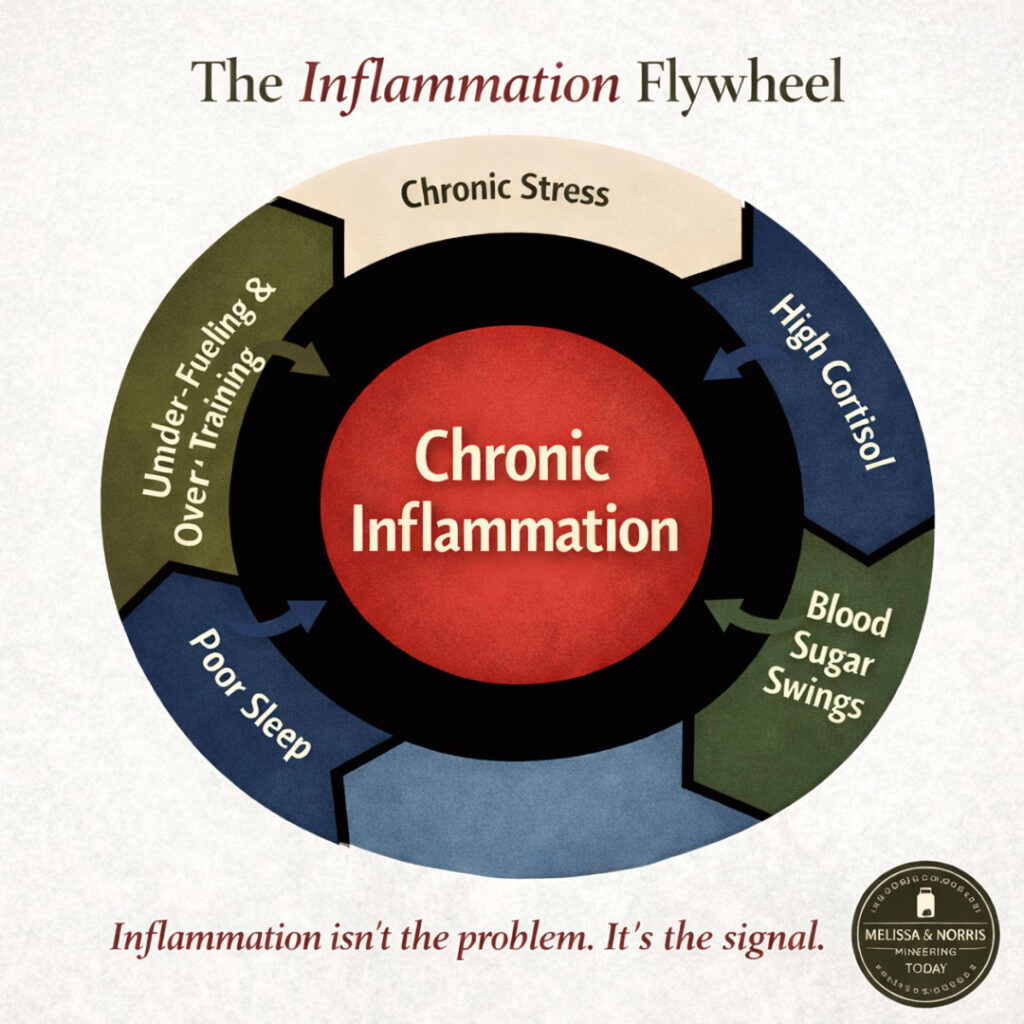
The Hidden Cycle Keeping You Inflamed
If you’ve been feeling puffy, tired, achy, or wired-but-tired, this two-page guide will help you understand what may be happening behind the scenes — even if you’re eating “healthy.”
Download the Inflammation Flywheel Guide and learn:
- Where to start so you don’t feel overwhelmed
- The 5 most common drivers that keep inflammation switched on
- Why blood sugar swings, stress, and poor sleep feed each other
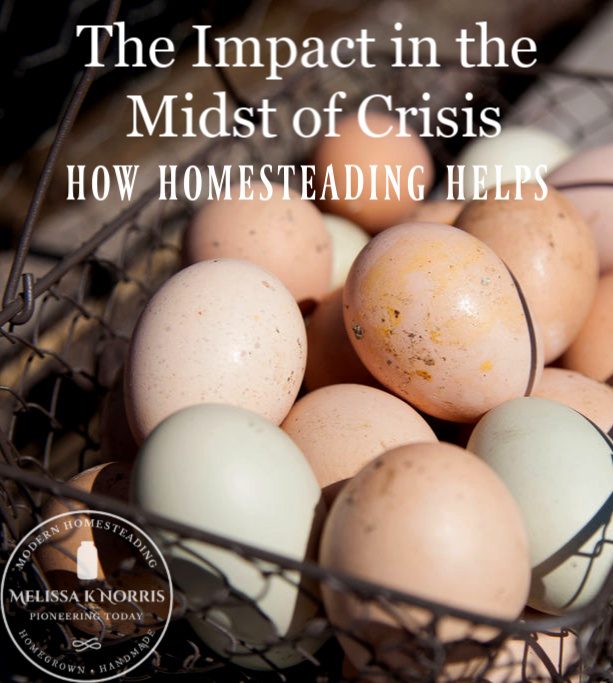
Listen in below to the full podcast, Episode #244 Impact of Being in the Midst of a Crisis of the Pioneering Today Podcast, where we don’t just inspire you, but give you the clear steps to create the homegrown garden, pantry, kitchen, and life you want for your family and homestead.
What Are Some of the Immediate Impacts?
Melissa: Ann, what’s happening in relation to the coronavirus where you’re at?
Ann: I never thought I’d say that we’re in ground zero, but that’s the reality. We’re in King County where the death toll has actually happened with one outside our county in Snohomish County, which is the county in between mine and Melissa’s. We are in quarantine city.
Two towns over from me, two young gentlemen in their twenties right now are in quarantine at Swedish Medical Center here in Issaquah, which is right down the road from my house. The high school student who was quarantined is actually 15 minutes, a little more South from me, at the high school down there.
We are seeing the true impact of what it means to be on ground zero. It’s really weird to say it like that because I think people understand what ground zero means, but people who do not live in our area have no idea of the panic mode and conditions in which we’re living right now.
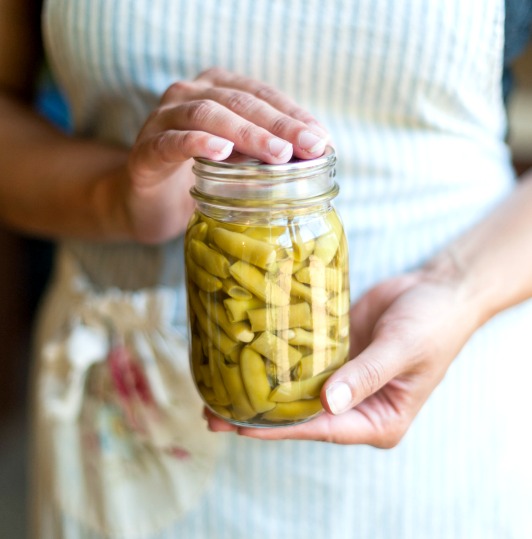
Melissa: Even where I’m at there is a lot of panic. Our local Costco is wiped out of bottled water, toilet paper, and Clorox wipes. A lot of places are out of beans and rice, or they’re limiting the amount that you’re allowed to purchase. It’s a real thing. Part of what has bothered me about this is I’ve seen is the division on this whole situation. There seem to be two camps (and I’m seeing it a lot on social media) of people: those who are fearing or a little bit anxious wondering if they have everything they need and the other that says everyone is overreacting. There may be truth to both of those opinions, but it seems very divided.
It’s easy to say that people are overreacting when you’re living in an area that’s not experiencing it and maybe you’re prepared. I know Ann’s prepared, I’m prepared. I have food, I don’t have to go into town. I have to get some chicken feed, even in that, I don’t have to. My chickens could forage if need be. I am prepared, but it still affects those around us and it affects our way of living. I think it’s easy for people to be judgmental about people panicking…maybe they aren’t prepared, but that doesn’t change the fact that they’re still your neighbor.
Ann: Like you said, there are two types of people that actually view what’s happening right now. I think what it is, is that people realized where I was when I created a post highlighting a shelving system in a local market that had absolutely no toilet paper or very minimal paper towels, tissue boxes were being bought left and right because the toilet paper was gone. My post was just to say this was where I’m at because people knew I was in Washington state. I received a lot of love and support to stay safe. But then I received a few messages that were basically stating that I was inciting fear into people and that I should stop doing that.
I think they forget that the lifestyle that I live in and that you live, we are prepared for something like this. We are prepared. This is why we got into this. We own our food stores, we’re prepared for it. I’m not out to make anybody fearful of what’s happening, but people want to know so much because they cannot really truly understand the concepts of what it’s like to be in this spot.
I don’t ever have to leave my mountainside for the next couple of months, to be honest with you. We’ve got enough meat in the freezer, enough food canned up. I’ve got a sourdough starter where I don’t need yeast, I have enough flour put up on the side. We’ve got everything that we need. We had toilet paper, got natural items to clean our home and keep ourselves healthy. We’ve always lived a holistic approach. I think that what people don’t understand is the impact of how others that don’t live our lifestyle are feeling right now.
When Melissa asked how I was doing, my response was that I was fine…but I’m emotionally drained. I am emotionally drained right now. The reason why is because I look at these people who were unprepared, had not even thought or any concept of wanting to be prepared in any way, shape or form until something like this hit. And now you’re sitting in ground zero in King County and I’m sitting two towns away from death, basically in the same town of quarantine…it’s mostly draining.
It’s draining to see the shelves empty, that people are in a panic, that people aren’t talking to each other. There’s no talking to each other. I don’t think people realize that they go to the market, keep their heads down and don’t make eye contact with anyone. They grab their stuff and run. That’s what it’s like to live in this area. I went to the Asian market to pick up some staples that we use because I am half Asian, and to see that the whole rice section was completely wiped out. There was nothing. This market is full of different varieties of rice everywhere, but it was wiped out. Gone. It’s impactful to see people who do not normally shop week to week, stocking up and they’re afraid.
There’s no hand sanitizer, not that we use it but there’s not to be found. The impact of the lack of availability, the fear that’s in the people because of it…it’s hard to see. Hard to feel. I think that is what people don’t realize when you’re living here. I allow myself to check the news only once a day because just knowing that it’s increasing….
Should I Really Be Concerned?
With warmer weather, they say that it’s going to pull back and withdraw a little bit. But if COVID-19 is not figured out by the time wintertime comes again, guess what happens? It escalates again. We could be looking at this for a couple of months and then all of a sudden see fewer quarantines, fewer deaths and then, however, if it’s not resolved or not figured out in a sense of a vaccine for some of these people, it’ll be back to where it was as it is now.
Melissa: Too, there’s so much with this that’s unknown. I’ve heard a lot of people say, it’s caused fewer deaths than the flu does annually. And yes, at this point, that is true, but I’m not here to dive into all the science and biology and stuff because, quite honestly, I’m not the person who has studied it enough and I don’t have the education to be an expert on it and make comments on it. I don’t understand it at that level and there’s so much misinformation I feel that’s coming out and just so much that is still unknown that I don’t really even want to go there. But, to your point, I actually think that some good will come of this because there will be some people who will acknowledge that they need to figure out ways to be more prepared and sustainable.
This is the nudge that they’re going to need to start to embrace this whole lifestyle – the whole modern homesteading, self-sufficiency, growing your own food, preserving…that’s a blessing. I hate that it takes some type of tragedy to do that, but I think it’s going to bring awareness and I think that we have to look at the positive. And I think that is a positive.
But, for people like Ann and I who don’t need to go stock up on anything other than our normal rotation of things, we’re still impacted. I’ve already been impacted because it’s going global and with imports and exports, like things from China. I try to purchase things locally and make my own stuff, but I’ll be honest, there are some things that I get that do come from China. One of those things is my eyeglasses. I don’t wear contacts, but I have severe astigmatism and have to wear glasses. I’d had the same pair of glasses for four years, they’re getting super scratched up. So I ordered a new pair and they’re made and shipped from China. Now, I ordered these before the whole thing hand really broken out, I think it was in January. Normally they come quite quickly within a few weeks, which is pretty fast. But I hadn’t received them and wondered if they got lost in transit. Then I started to get notices from them that because that’s when they started to go on quarantine in China and the plant that my glasses were being made, there were no workers. They did finally come, but it was three times the length of time that they normally would.
That was just one little thing, but if they continue to have the quarantines and everything is shut down, then we start to experience this in American, which we are now, how much is this going to impact us? Not just in the immediate part. And we don’t really even know yet. So it’s speculation and I think it’s something we should think about. Not in a fearful way, but in a pragmatic way where we’re adjusting our thinking and maybe preparing out thinking for down the road. Some of the stuff that’s being sold out right now, it may not be replaced or it might be replaced in small amounts. So thinking about that, what will be done if you can’t get it from the store? What are some alternatives that you can start to prepare for now?
Ann: I think that’s what it is, is that people do not really stop and think about it. Like you said, you have your two teams, right? So in the long run, there is nothing that we can o other than stay healthy, wash our hands, don’t touch our faces, things like that. So that’s keeping yourself as isolated as possible and staying away from town or wherever you’re going to go or whatever you’re going to do. Now, unfortunately, that flows into what’s going to happen with the import/export. Where does it start from there? I mean, it could take up to three months, hypothetically speaking, let’s just say that the trade is closed down because of it just starting to spread.
I teach at a Christian preschool two days a week for four hours at a time. I was talking to a family that was there just yesterday and guess what? They now have quarantined almost 25 people because those people had traveled abroad from India and they brought it back. So now they have now started beginning quarantine in India of families and individuals who have COVID-19. So now this has now gone past just China to ground zero where we’re at. It’s going everywhere. I have friends in New Zealand who homestead that have cases reported already. So what happens? A trade shut down right? Because America is going to say we need to control what we have right there. Let’s close down trade. And once they open trade, guess what happens? It’s not immediate. We’re looking at a couple of months before the continual flow of product is returned back to our soil.
So what happens at that point? Where do we go from there? Is medicine available? Are prescriptions available? On top of that, do we have enough herbs that we would normally order from somewhere? Is it now available for us to continue to live a holistic life? You know, toilet paper runs out, big deal. Cut up a couple of shirts. What do we need? Where are we at? Our chicken feed, is it milled in the U.S.? Are we going to be able to replenish from that point forward?
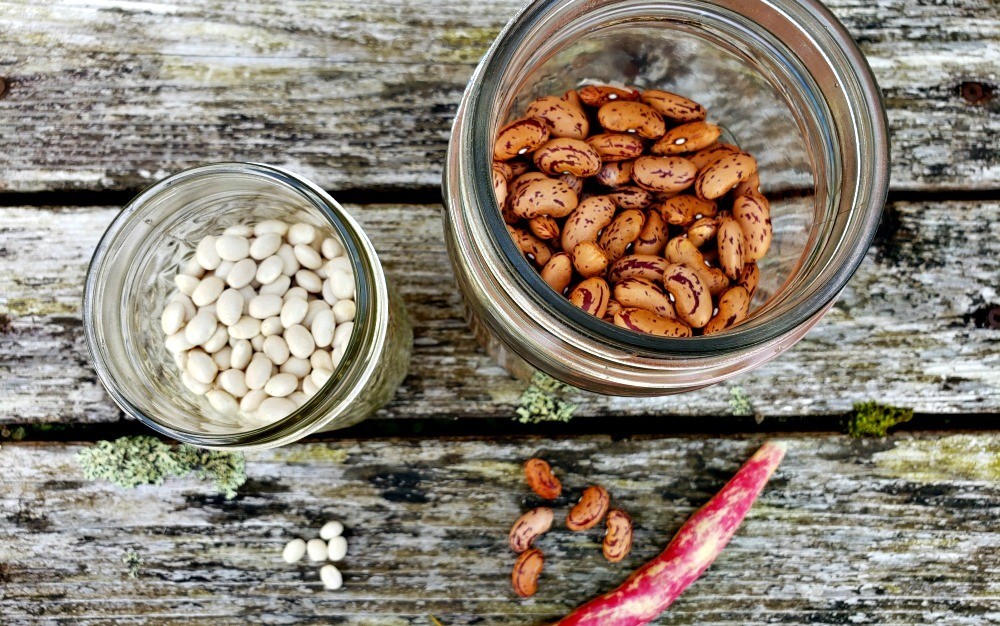
I think that’s what the question is, as the type of individuals that we are living the lifestyle that we do, we think about that stuff in the long run. We’re not here to incite fear on anyone. We live a true planning concept of everyday life, but we don’t look at it day by day as many of the individuals who are at ground zero are doing. We live it as long term thinking; what’s going to happen next week, next month, in a couple of months, and a year from now. I think that is a bonus that we have for the lifestyle that we live in.
Earlier you had said that you thought individuals were going to be more on board with wanting to own a little bit more by stocking up and preparing. I hope that that’s true. I mean, stocking up on toilet paper and cold medicine may not be enough for these individuals. I don’t expect everyone to go out and buy land and start doing everything that they’re going to do, but I do hope that what I see from my friends in town and what I see from the people that I cross on the street is that they will realize that it takes more to be prepared than anything else.
Melissa: I completely agree. Even for me, I’ve really taken this opportunity, and I hope that it’s not causing panic because that’s not my intention, to look and see what I’m out of or what I’m not as well-stocked as I should be and take note of that. One of them for me is that I ran out of dried beans. It’s one of the things that’s selling out like crazy. Naturally, I have my seed bean and I think I might need to grow more this year than normal. I don’t know. So I’m not touching my seed bean for use as a food source like I would dried beans. I had been intentionally running down my store-bought dried beans because I just used the last of the dried beans we had grown ourselves. It’s the beginning of March so I had about six months worth of dried beans that we had grown. So I know I need to double my dried beans if I don’t want to purchase any dried beans from the store. Anyhow, I had some store-bought beans that were getting a little bit old. And since I hadn’t used them in the time that I should have, I purposely was trying to run my stock down and then when I got through them, decided I needed to get through what I preserved first. I didn’t want to restock until I’d used most of what I’d had because I didn’t want to run into another situation where the beans got too old.
I waited a little too long. They didn’t have any dried beans in the store. But I have lentils and split peas and I have rice; we’ll be fine staple wise. But I had to really look at that and contemplate. I’m a homesteader and I’m prepared but I ran out of dried beans at the same time as everybody else is trying to buy them.
Ann: It’s not just the beans though, right. Think about it, think about the staples. You ran out of beans. I have beans and rice. You know what I did not have? I normally keep dried milk. I always have boxes of dried milk in the house…but I was completely out. I went to the market to grab a couple of boxes just because we always have it. There was no dried milk. I own a freeze dryer and my husband asked why I didn’t just freeze-dry milk. I didn’t even think about it. It’s one of those things. I only had a jar and a half of baking powder. I didn’t have anymore baking powder. So in reflection, it’s those other things that we need to really stop and say, “Do we have enough of this?” I’m not going to lie, I have a list now of things that I know that I need to go back and grab. I need to know that I have all these items if for some reason we are in quarantine.
If for some reason one of my family members is sick. For example, if a kid in school got quarantined then what happens is the school, per protocol in Washington, sends a notice home to the parents and then the parent at that point keeps the child at home, the school shuts down. You monitor your child watching for all the signs and symptoms of influenza, including fever and whatnot. Then, if any of those symptoms appear, you call your doctor, go in, and get tested and know if we’re in quarantine. But you’re family is in quarantine anyway because we won’t know if we’ll contract it or whatever the case is.
So if I’m stuck here with my family for X amount of time, I need to make sure that we are stocked with our basics. Honestly, I can say there were basic items in my home that I should have had more of and that was surprising to me.
Melissa: I’m going to town tomorrow and same as you, I have a list of some items that I need. This is going to sound funny but one of my items is popcorn. We have popcorn every weekend now. It’s not a staple food; we absolutely could live without popcorn, but it’s something that our family likes for movie night. It’s something we use on a regular basis so even if I stock up on this stuff, it’s going to get used. It’s not like I’m stocking up on something I won’t use or is impractical, which is happening too. People are stocking up on stuff they don’t even normally cook with just because they think they need to have it. But I’m going to stock up extra on the popcorn because if I do get a quarantine for medical stuff then I want to keep things as normal as possible. We’ve been confined to our home because of mudslides or flooding that have taken out the main road. We’ve been stuck and have not been able to get out.
Keeping things as normal as possible is the best scenario because no matter how much you love your family, but if you’re stuck in a house with them 24/7 for days on end, you get on everybody’s nerves. It’s a real thing. so I want to be able to keep life as close to normal as possible. in the grand scheme of things, no popcorn is not that big of a deal, but it’s one of the things that it’s a simple pleasure. It’s comfort food. So that’s on my list. I’m buying extra popcorn and extra butter for the freezer. So I’m looking at things like that. We’ll have extra and I’ll use it. The fruits and vegetables and the meat, and like the chickens, I need to make sure I have food for them. They can forage if need be. I have eggs.
I don’t have a dairy source. You were talking about the powdered milk, so a dairy source went through my head. We have beef cattle and two of our cows have older calves on them, so they’re still producing milk. They’re not tamed; they’re not halter broke. But, we have panels if need be. It might take a while, but we could tame them and break them into being milk cows and it would definitely be a project and not easy. In my mind, I’m always planning ahead. If need be, this might be a route we need to go for this.
Changing Your Thinking on Preparedness
Ann: And I think that’s what we need to think of it as, this lifestyle we live, we went into it for the main source of owning our food source. Being prepared. You don’t have to be a prepper to be able to be prepared for anything that happens. That can be as simple as something like unemployment. Justin, my husband, was unemployed for six months in 2009 when the economy collapsed here. We were living in Bellevue, the suburbs and I knew nothing of this life. But I knew that, at that moment in time, unemployment was enough to pay the mortgage. I went back to work on a part-time basis. We ended up visiting local food banks and we weren’t the only suburban family to do this. We had seven children so we had a lot of mouths to feed. I think back to that time when I saw the shelves empty and people really nervous and scared, and I thought, “What am I doing? What do I need to do?” So when I entered this lifestyle I decided I wanted to own my food stores. It’s not just about that, it’s about being prepared for anything. At any point in time, somebody could become unemployed and you have to live off the resources that you have until you can actually get back on your feet again.
So it isn’t about necessarily prepping in that sense because I don’t consider myself a prepper in any way, shape, or form. I just consider myself a person who prepares so that I know what I need to do in case something should happen, or Justin should get hurt at work and he’s not able to claim a paycheck or whatever the case is. My family is able to survive. The running joke at work is that we could all go to Ann’s house and I just look at them and say I could teach you how to keep staples in your own house. I welcome the company, but let me just tell you what you need. I think that’s what we need to really prepare for.
Everybody can say that they are prepared for something like this until it happens, right? Then you have to take a step back. Stop and really open your pantry. You have to realize that those 26 jars of jam that you canned last year compared to those 8 jars of meat that are sitting there…that is not balanced. So you need to think about this situation on hand and decide what you could do differently? So, in lieu of canning more jam, I need to make sure I have enough meat put up so if something should happen in any way I have a better balance. It’s a complete mindset shift.
It’s weird, in talking to other homesteaders that don’t live in my area, are in another state or different country they have yet to, and I’m not saying this in a negative way, fully shift their mindset to stopping and evaluating, if they were in quarantine, where do they stand? I will be the first to say I need to reassess my situation. That’s the truth of the matter. Everybody who homesteads really need to reassess their situation. On top of that, I would implore and beg that you stop and consider your neighbor, friend or family member. If they needed your help in this, would you give them the guidance to teach them the basic core because they’re not going to stockpile food or put up food the way that we do. But we could teach them the basic core of what they need in their home.
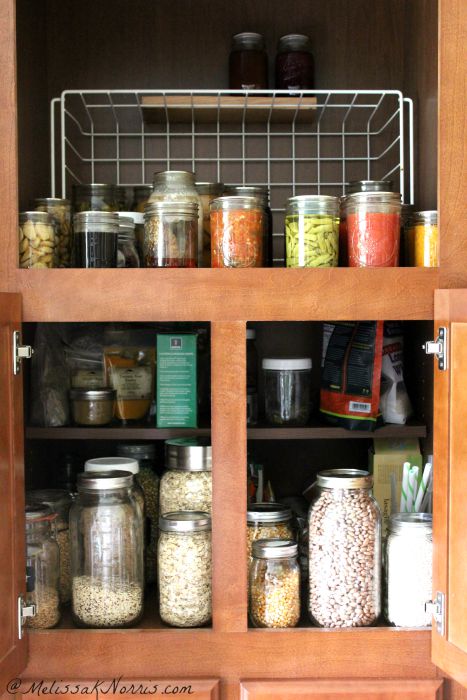
Melissa: I completely agree. I didn’t know that you guys went through your husband’s unemployment. In October 2009, we were living this lifestyle but not to the extent that we are now, my husband had his hours cut by 8 hours a week for a full year. And we had just had my daughter in May of that year so we had had medical bills and lower-income from when I needed to take time off work for the birth and care of my daughter. This sounds weird to say because it was great on one hand because I knew that we just needed to eat more food from the food we had put up since I wasn’t able to purchase as much from the grocery store. It was good because it showed me where we needed to improve our food storage. I knew that we needed to grow more tomatoes because it’s the base for a lot of my cooking.
Where Should I Start to Become Prepared?
For those who don’t know where to start to be prepared, do you want to list some of the basics that they should have? Where should they start?
Ann: These are some basics that I think would be good to have on hand and are a good starting place.
- Flour: The easiest thing I would say is flour. If worse comes to worst, you can fill your bellies with bread. Something as easy as no yeast bread, otherwise known as Irish soda bread. Fill your bellies with that. You don’t need the yeast to make that.
- Dried Milk: The other thing you need to have on hand is dried milk. You can reconstitute it and make things with it.
- Beans
- Rice
- Toilet Paper: We joke about toilet paper, but it is a comforting thing to individuals because that’s all they know. To me, if we run out of toilet paper, I just have to decide what t-shirts we can cut up.
- Baking Soda
- Cornstarch: Baking soda and cornstarch are both good to have on hand at all times.
- Sugar: Make sure you have enough sugar. You can either do sugar or honey if you’re not raising your own honeybees. I can’t raise my honeybees living in the mountains. I don’t have an area where I can put the hives at. I’m actually going to go to the neighbor’s pasture and put a hive in his pasture. So if you’re not raising bees for honey for cooking purposes, think about the type of sugar that you want to have on hand. You don’t need it, it’s not a necessity, but it is something that a lot of people use.
- Salt
- Pepper
- Tomato sauce you can turn this into pasta sauce, pizza sauce, soups, chili, and even mix it with broth for tomato soup. Here’s how to can your own tomato sauce
- Rice Cook this in broth, add in some spices, with odd and end vegetables to stretch a meal.
- Herbs and spices
- Broth You can easily make bone broth at home, here’s my tutorial on how to get a gel every time with the Instant Pot
Also see 8 Foods You Should Be Storing and How
Whatever you can put up dry. My family, we do dessert every night. To me, it’s one of those things that would end up giving up. You have to think about it, what can fill your belly with the little amount of stuff for storage? Where I live, everything is turning into townhouse-style housing where you can actually high five your neighbor across the window so they have very little storage space. If it takes putting in a Rubbermaid container some flour, sugar, yeast or dehydrated sourdough starter, whatever you need in that sense to just have the basics to fill your belly. That is it. It’s not going to be nutritious; you can’t eat bread every single day but it is going to fill your belly.
And get some good cast iron because you can make something in it. You can make bread in your cast iron without having to worry about a bread machine.
Using Your Food Storage to Make Meals
Melissa: Yes, and start learning how to make bread now; start cooking some of these things from scratch that you would normally buy from the store. If you go into quarantine, you’re not going to be able to buy store-bought bread. I hope for those who haven’t yet started baking and cooking from scratch that this is an encouragement for you to start sooner rather than later.
I’m glad you mentioned salt and pepper because, especially for the salt which we actually do need depending on your health reasons (like if you have low sodium), they really make things more palatable. Things just don’t taste as good without salt. And for rice, having herbs and spices can bring the flavor up so much. Herbs are dehydrated and store really well. They’re not going to be perishable. So think about those.
Then for bread, like Ann said, a base of flour and salt and water, sometimes a little fat, there’s so much you can make. For example, flour and salt, add an egg and you have egg noodles or pasta. You can then use some store-bought tomato sauce, if you don’t have homegrown and preserved, to make a pasta sauce. Like Ann said, bread may not be the most nutritious but they allow you to stretch the staples that you do have that much further, which in a situation where you can’t go to the store and replenish is really important to stretch that produce and meat and vegetables that you do have.
Those are definitely my basics as well. Another basic for me is plain tomato sauce because you can take that sauce, add some herbs and spices, and turn it into a quick pasta sauce, quick spaghetti sauce. Simmer it and turn it into a pizza sauce. There are so many different things you can do with a basic tomato sauce.
Ann: I don’t can anything but a basic cause anymore. I stopped canning chili, stopped doing spaghetti sauce. I just do basically a true tomato sauce and that add seasonings according to what I’m going to make.
A lot of individuals cannot raise livestock because of the size of their property or haven’t gotten there yet. I would highly suggest that you learn how to can meat and fish. Those are going to be the proteins you’ll need to keep your energy up and keep you going. This is for anything: unemployment, natural disaster, whatever.
To be honest with you, if you have not spent a long day in the garden and you did not want to cook, chicken fajita out of canned chicken is one of the easiest things to make. So learn to can meat. I realize now that this canning season is coming up and I have 40 Cornish Cross chickens to pick up tomorrow at the feed store. I now know the majority of it is going into cans. I already know it.
Melissa: We love canned meat. Meat needs to be canned in a pressure canner for those who aren’t familiar. One of our favorites is smoked salmon. We never run out of that. As soon as it starts to get low, my husband is pulling out the smoker. That’s something that he’ll take for a quick lunch for work. I love canned smoked salmon because it already has that flavor from the smoking. I can make a quick smoked salmon chowder fro dinner or even salmon cakes. Canning is the ultimate for batch cooking for busy nights. No freezer required.
Ann: My freezers are reserved for my meat source or whatever vegetables I want to have on hand to make a stir-fry or whatever the case is. That’s what I would encourage people to do is canning. Canning jams and jellies is fun; it’s something we do every year and is a tradition of ours but also can meats and veggies.
Melissa and I aren’t here to scare anybody. I’m only here because the impact of being at ground zero…you guys have no idea. The fear is in the faces of these people. Nobody wants to look at anybody for fear of contracting this virus. As stated earlier, when Melissa asked how I was doing I just let out, it’s emotionally exhausting. I almost feel guilty knowing that my family is taken care of and these people who are struggling because they can’t even find toilet paper anymore anywhere are having a hard time.
I can’t stress it enough, just the impact of knowing what I need to improve on…and I’m a very thorough homesteader. This is what I do, this is my life. And to know that the shortness that I fell upon in regards to my basic necessities and everyday life is enough for me to take a step back and regroup. I now know my homestead needs to be 150% efficient versus 100%. That doesn’t mean stockpiling. It doesn’t mean prepping. I’m talking about being 150% prepared for anything that’s going to happen.
Melissa: I’m with you. I don’t consider myself a prepper. I don’t know who originally coined this or where I originally heard it but the saying is that every homesteader is prepared, but not every prepper is a homesteader. And there’s a difference. I feel that there’s a different mindset; I see within the preparedness community a lot more fear-based and whatnot. I hope I don’t come across that way because that’s not how I operate and it’s not my intention.
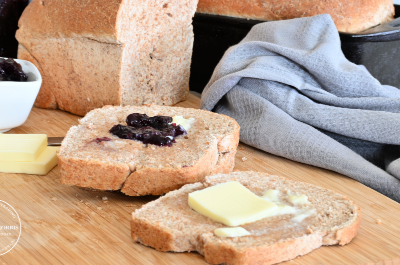
I look at people who buy all these big prepper kits and stockpiles of freeze-dried food and all the stuff and my thought is one, you have to spend a lot of money on this stuff and you’re not using it in your everyday life. Second, if there is a long-term catastrophic event, whatever it may be, after you go through that stuff, what are you going to do? How are you going to regrow your stockpile? So I don’t consider myself a prepper. I’m prepared, but I don’t consider I’m a prepper in any way, shape or form in modern society’s definition of a prepper.
Ann: Yeah, definitely take a step back. I went as far as taking everything out of my pantry. I have a small house, I don’t have a lot of cabinet space, but it’s packed full of things. I looked at what I have and took inventory. I don’t really need four little spice jars of mustard seeds but I would for canning season. Take inventory of what you have and reassess what you need to build on from that.
Do you really want to put up 100 jars of pickles? I’d think you’d hate those pickles in six months. Unless your eating pickles every single day, you do not need to put up 100 jars of pickles. And how are you going to use those pickles? So assess what you’ll utilize something for. How and where is it worthwhile to invest your time? I now personally know that having that much flour on hand is a necessity. There are days that we’re making three loaves of bread versus just two. If I’m taking bread somewhere, it’s up to six loaves a week. So yeah, we do need this much flour.
Melissa: One of my goals is to cook what I’m stocking upon. I don’t always hit it 100% but if I’m growing this stuff and preserving it, I need to be cooking from it on a regular basis. Otherwise, it’s silly to put forth all that effort and time. I’ve been getting back into baking, even more, doing more sourdough and all of that. I do a lot more baking in the winter than in the summer. I found this winter that I’m going through a lot more flour. I had just stocked up on flours. I try to keep a minimum of 20 pounds of flour in my back pantry at all times and of course in the container in my cupboard. But I’d let it get down to operating on maybe five to 10 pounds. Just two weeks ago I realized I needed to get stocked back up on my flour and sugar. I’m glad I did.
But it’s also realizing if you’re not cooking very much from the items that you have, then something this happens where you need to rely on that your stores on hand you may go through it a lot faster than you’re anticipating. Take a look at your cooking habits and review if you’re using your food storage on a regular basis so that you can assess if you truly do have enough based on the amount you use.
Ann: It goes back to, each canning season, I think the wisest woman actually takes her canning jars and keeps them where her canned food is being kept. Like, you empty a shelf, your jar goes back as you’re rotating your jars around. In that sense, you know what you’re consuming.
I think you nailed it. You need to empty that pantry. If your pantry by the end of spring when you’re getting ready for your new harvest has not been depleted by at least 50%, then you need to reassess what you’re putting up. And maybe your family did eat 26 jars of jam, but now that we’re talking about this situation, where the virus has reached our soils, maybe you need to know dedicate a little bit more of that pantry space to something else a little bit more sustainable and filling and protein driven. I cannot express how important bone broth is to a pantry.
Worst comes to worst, I can still give my family the true benefits that they need out of it by just adding a little bit of canned meat to it and making a soup out of it. And that’s going to fill them and keep them healthy. It’s going to really soothe them and it’s a comfort item. So I really encourage putting up a lot of bone broth. I’d add this to the staples list.
Melissa: I cook my rice in bone broth instead of water because it does add flavor and nutrition.
It’s March right now and the majority of my warm-weather crops where I really fill my pantry don’t start getting canned until the end of July into September. Right now I am using my stock. When I was reviewing what I have left I noticed a lot of my jars and shelves are emptying but there are some items that I know I need to eat more of during the upcoming months. I’m thinking I might need to plan this year to plant a little bit more than I usually do. So, on one hand, it’s kind of a good time for the garden planning because I can look ad determine what I need to increase and what needs less grown. It’s kind of what I do normally but it’s a weird feeling seeing so many empty jars that I have to remind myself that it’s because we’re eating what we put up. Which is the goal.
Ann: The think about our lives is that no one year is the same as the next. It’s never the same. You may only have space for 150 jars in that area, but you’ll come to reassess that space really well. No pantry, no freezer, no food storage in any way, shape or form will be the same as it was the previous year. Something will modify, adjust, or the taste of what you’re preserving is different.
Your crop yield was completely hit with blight or whatever the case may be. It’s different each and every year and it’s how you maximize what you’re doing for something like that. If your garden flopped and you got nothing out of it, where do you go? Because you still want to preserve your food because you still want a clean food source. You go to your local farmer’s market. I go to my farmer’s market and ask to buy in bulk and they give me a great discount. Those are the tips and tricks you need to learn how to do because nothing is the same each and every year.
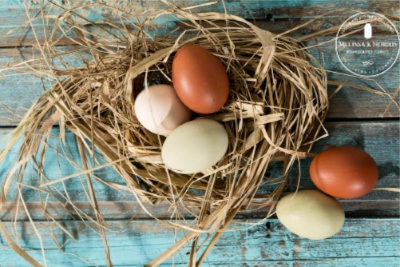
You may get a bumper crop of tomatoes this year, but guess what, next year you might not. Does that mean you suffer and don’t put up those food items? We know we want to make it and know what’s in it. Those jars have our love and our touch in it because we know what we put in them. I look at all these people here who ransacked the pasta…which was another thing that was empty. Spaghetti, all those noodles…gone.
You mentioned egg noodles earlier. Heck yea, make egg noodles every day of the week. But then I step back and think, ok, they don’t have eggs. They don’t have the flour like we do. And they don’t think about it.
We live a truly blessed life. I think those of us who are in one field or the other in regards to how they feel about this situation, like if they think people are being silly about it or not. Like it’s not a big deal. When you look at people like I have this last week…it’s only been a week in truth…and I realize, I can feed myself without going to the market. And it makes me sick to my stomach. I think that’s the part that I say that it’s emotionally draining. It makes me sick to my stomach to know that I cannot help these people. And I know that my family is taken care of.
Melissa: I think you feel a burden.
Ann: I would just say to those who thought that I was putting fear-mongering out there for all these people. It’s not about that. It’s about us living this lifestyle and share what we know with these individuals. When I first started this whole social media journey that I’m not, many mocked me saying they didn’t want to see my chickens or my food. You know what, maybe you want to see my chickens and see my food now because then you’ll see how easy it is to do what I do.
Where to find Ann
- A Farm Girl in the Making
- The Farm Girl’s Guide to Preserving the Harvest: How to Can, Freeze, Dehydrate, and Ferment Your Garden’s Goodness
Additional Resources
- Home Food Preservation- Preserving Plan for a Year’s Worth of Food
- Learn how to Pressure Can – Free 4 Part Video Series on Safe Pressure Canning
More Posts You May Enjoy
- How to Use a Generator During a Power Outage
- 30 Day Preparedness Resource Page
- Bug-Out Bags (What You Need to Know)
- 10 Ways to Keep Warm Without Electricity
- Off Grid Living: What You Need to Know
- 11 Ways to Cook Off-Grid Without Power
- Cast Iron & Dutch Oven Outdoor Campfire Cooking
- How to Make Beeswax and Lard Candles at Home
